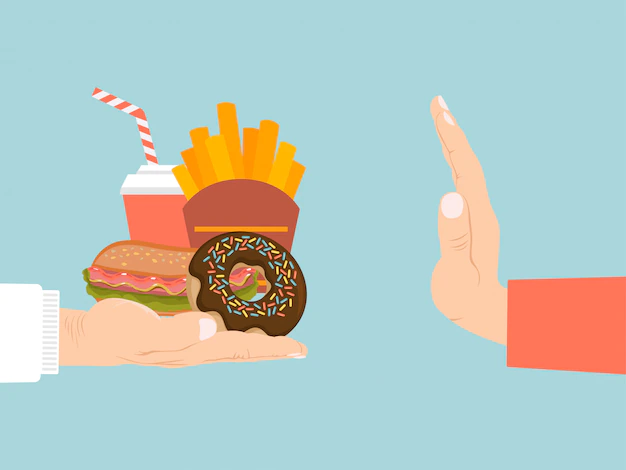If you have been diagnosed with Chronic Obstructive Pulmonary Disease (COPD), you must have learned at your cardiopulmonary rehabilitation program that consuming an unhealthy diet or smoking cigarettes can deteriorate your condition. Unfortunately, these aren’t the only lifestyle changes you need to introduce to lead a decent life ahead.
Here are eight common habits you must avoid when you have COPD to ensure your condition doesn’t get worse –
1. Eating Too Much Junk Food
Junk foods contain many calories, which contribute to obesity, making it worse for people with COPD to exercise and breathe. Other than that, most fast foods are high in sodium, which causes the retention of fluids in the body, leading to congestion and breathing difficulties.
2. Not Exercising
When you don’t stay active, you get out of shape, which can eventually make it difficult for you to do your routine activities. By doing regular exercise, COPD patients will be able to incur long-term clinical benefits along with reduced healthcare costs. At the same time, a sedentary lifestyle can increase the risk of mortality in individuals with COPD.
Apart from that, exercise helps alleviate symptoms related to depression and anxiety. Hence, it’s another reason you should consider exercising regularly.
3. Irregular Sleep Cycle/Inconsistent Sleep Schedule
Everybody needs a good night’s sleep to remain healthy, and it is particularly true for people with COPD. Because their immune systems are compromised, they need to work twice as hard as others to stay healthy.
Unfortunately, many COPD patients suffer from sleep disturbances. The COPD Foundation has found that around 10 to 15 percent of individuals with COPD suffer from sleep apnea, a common condition where breathing stops or becomes shallow during sleep. If you suffer from the same, you must speak to your doctor to treat it.
Other than that, you must also avoid staying up late at night to throw off your circadian rhythm, making it difficult for you to sleep the next day.
Maintain a consistent time of sleeping and waking up every day to ensure a healthy sleep cycle.
4. Overexerting Your Body
Moderate exercise is essential for improving oxygen flow, energy levels, sleep patterns, mood, and muscle strength. However, it is never alright to go overboard with it, especially since it can lead to exacerbations.
People with COPD have a significantly lower exercise threshold, so their bodies cannot handle intense exercises. It is best to stick with mild yet regular exercise in the form of resistance training, stretching, and aerobics.
5. Ignoring Dusting
When you have COPD, you can stay away from lung irritants because they can worsen your condition. Because dust is a common form of lung irritant, you cannot have them in your house. Additionally, staying away from paint fumes and second-hand smoke is a wise choice.
If you’re unable to clean your house, ask somebody who can help you out. Invest in an air purifier to keep dust and other pathogens at bay. You’re also advised to stay away from wood-burning stoves and fireplaces.
6. Having Too Much Coffee or Caffeinated Products
Because coffee and other caffeinated products are stimulants, they will keep your mind active, preventing you from falling asleep. Restrict your daily dose of caffeine till the early afternoon so it doesn’t disrupt your sleep. You must also avoid having too much of it because it can dehydrate your body.
7. Forgetting to Stay Hydrated
When your body doesn’t get enough water, the mucus becomes thick and sticks to your lungs, which can worsen your breathing issues. You must remember that drinking alcoholic beverages and caffeine dehydrates the body. If you’re looking for ways to stay hydrated, have natural fruit juices, decaffeinated tea, or coffee, and always keep a bottle of water alongside you.
8. Getting Stress Out Often
It is stressful to deal with a chronic lung condition by yourself, especially when family obligations and work duties are involved. However, that doesn’t mean you can let the anger, frustration, and stress get out of hand. Whenever you notice signs of getting overly stressed, practice the breathing exercises for COPD taught to you at your pulmonary rehabilitation program to calm down.
You should also consider becoming part of a support group because it will give you a channel to vent your anger and frustration, teach you better ways to cope with difficult situations, and make you feel slightly less lonely throughout the process. If you require further assistance, ask your doctor to refer you to a counselor.
Wrapping Up
Life will not be the same after your diagnosis and living with a chronic condition will sometimes get to you. However, if you’re able to introduce these changes into your lifestyle, you will be able to extend your lifespan and lead it meaningfully with the people you love.
Marta Jordan is a professional writer & blogger, who writes for a variety of online publications and loves working with words of all shapes and sizes.

